Build Back Equal: Towards women’s and young people’s economic resiliency in the Eastern Caribbean
Date:
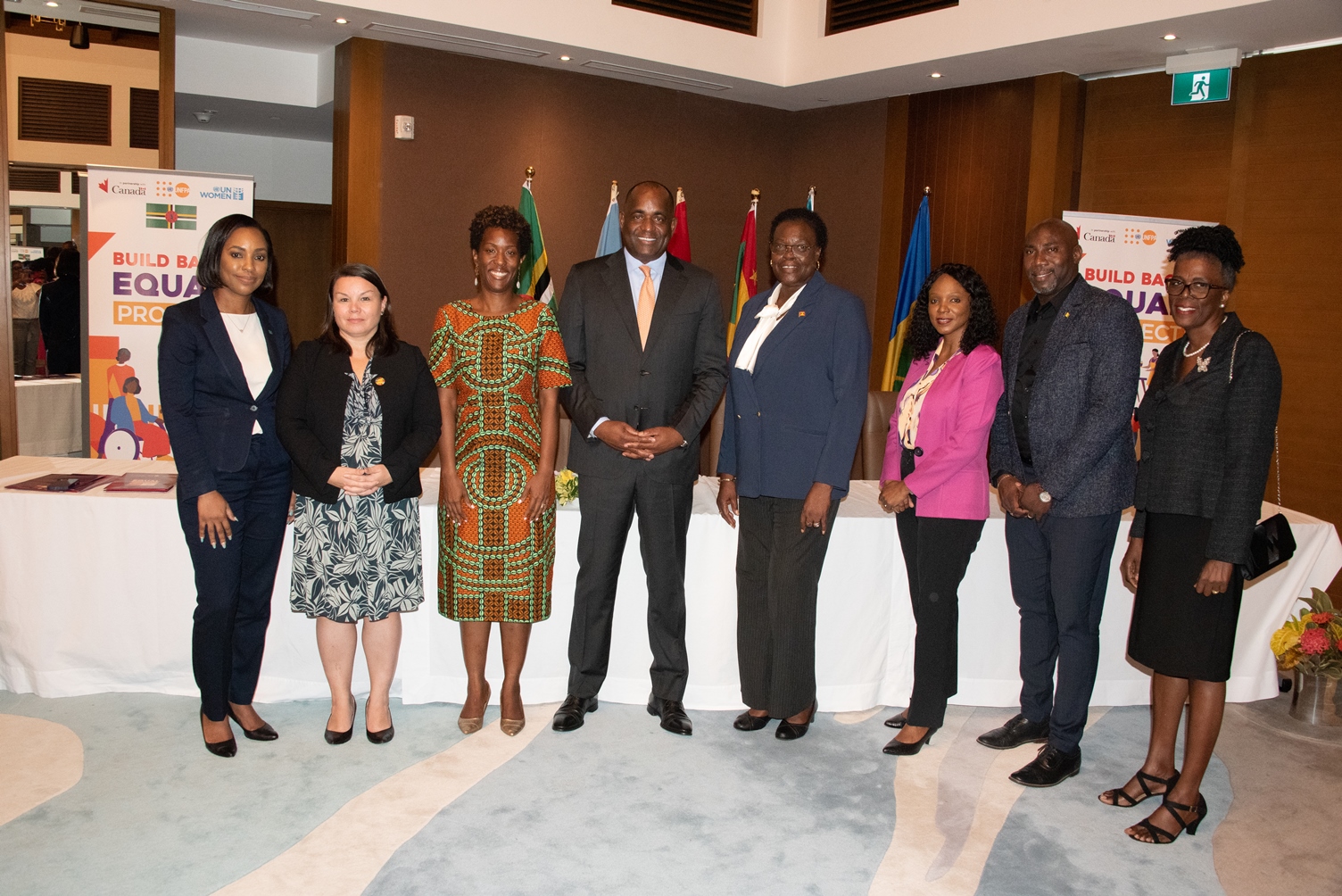
(UN Women Photos/Sheldon Casimir)
Portsmouth, Dominica: The Global Affairs Canada-funded Build Back Equal Project focuses on ensuring women and youth-owned businesses have access to affordable and adequate financing, fit for purpose social protection programmes that ensure no is left behind, sexual and reproductive health services that are more effective and that survivors of gender-based violence can have easier access to the services they need.
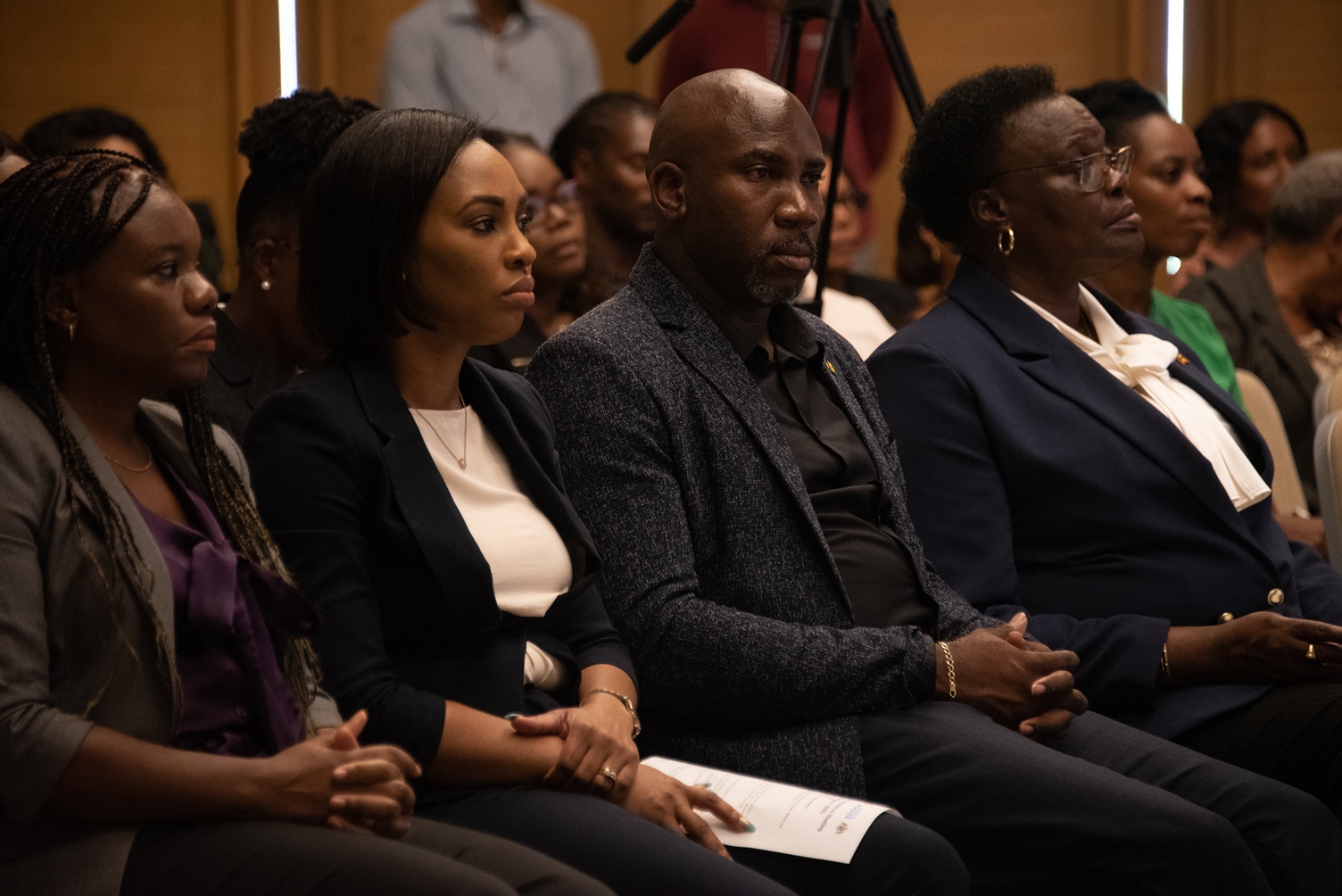
Prime Minister the Honourable Roosevelt Skerrit, joined Representative, UN Women MCO Caribbean, Tonni Brodber, UNFPA Deputy Director for the Caribbean Sub Regional Offices - Jenny Karlsen, and ministers and senior government officers with responsibility for gender from the 4 programming countries for a stakeholder session, highlighting the need for and the benefits of the project. These included: The Honourable Orando Brewster - Minister of National Mobilisation, Social Development, The Family, Gender Affairs, Youth, Housing and Informal Settlement in St. Vincent; Senator The Honourable Gloria A Thomas - Minister of State with Responsibility for Social Development and Gender Affairs for the Government in Grenada and Permanent Secretary (ag.) Ms. Veronica Charles and Ms. Sheila Imbert, Deputy Permanent Secretary in the Ministry of the Public Service, Home Affairs, Labour and Gender Affairs from St. Lucia. High Commission of Canada to Barbados and the OECS First Secretary Development, David Éric-Simard delivered his remarks virtually.
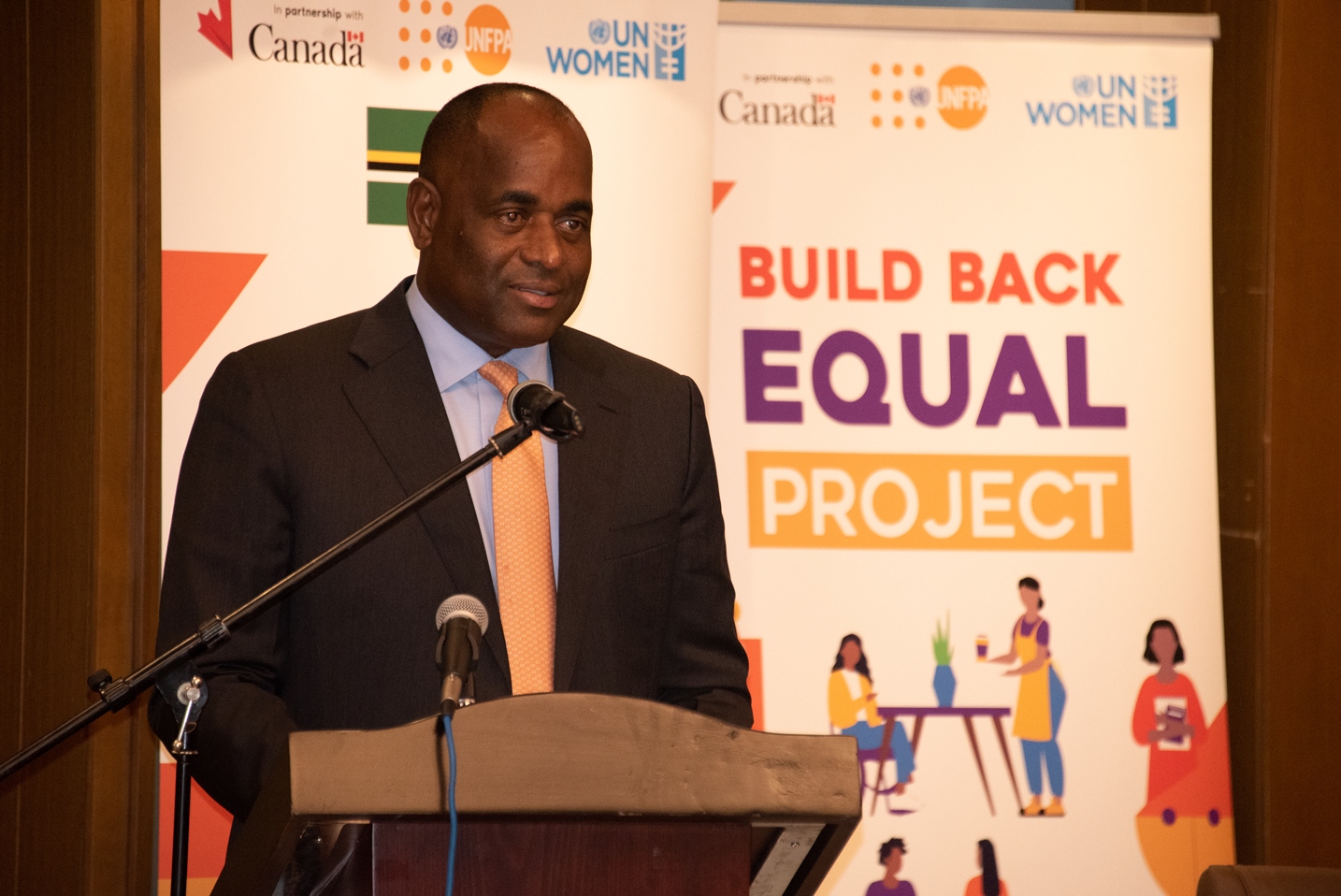
Prime Minister Skerrit said the Build Back Equal Project “takes place in Dominica at a time when we have been concerned, as a people and Government, with strengthening our systems against the threat of climate change and other external shocks; and empowering our women to be major players in creating a stronger society.
And so, I welcome the start of this project here, which is focused on tearing down barriers for women to access sustainable economic opportunities. The launch of “The Build Back Equal” regional project today is critical, since it harnesses the aspirations of four (4) members of the OECS… [to] serve as a catalyst to achieve our national and regional goals on gender equality.”
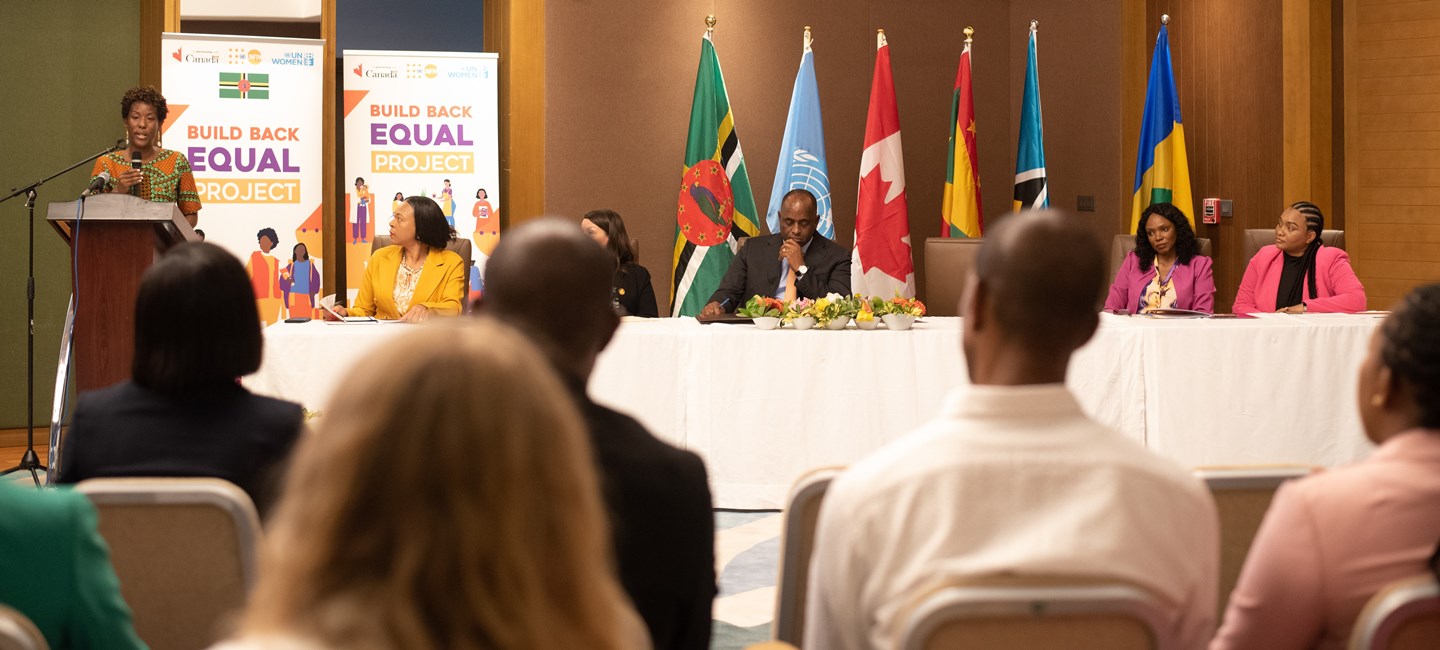
Representative, UN Women MCO Caribbean, Tonni Brodber told the recent project stakeholder session in Dominica that among other areas, the project will support women’s and youth’ upskilling in business development and management towards business viability including climate sustainability.
“We need to thank the Government of Canada for an investment of 10 million Canadian dollars to do this work, but the private sector is also on board, and soon we will be launching in each of the countries, a new private sector entity that will be giving loans to gender-responsive businesses and these businesses do not need to be businesses owned by women. They need to be businesses that have products that serve equality, and employees who serve equality.”
Ms. Brodber added that a UN Women study on Labour Force participation across six Caribbean countries noted that even though women were better educated than men, the economy was still not taking full advantage of the available human resources because women were not reaping the full potential benefit of their education.
“What work are women doing that we are not accurately reflecting? Work perhaps that is not considered ‘economic activity?’ Work like cleaning the house, taking care of the elderly and getting children to school on time. That unpaid care that really during the pandemic demonstrated to us, that work is being done but it is not necessarily reflected in our economy. The good news is that the Build Back Equal project - will assist you in not only getting the data, but the programming that will address this gap.”
Read the full remarks delivered by UN Women Representative, Tonni Brodber >>
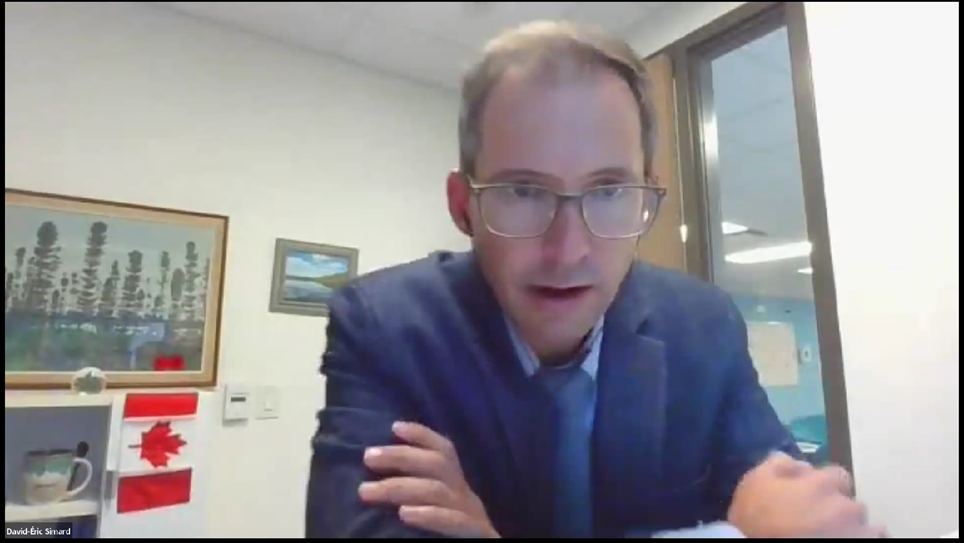
High Commission of Canada to Barbados and the OECS First Secretary Development, David-Éric Simard thanked the Governments of Dominica, Grenada, Saint Lucia and Saint Vincent and the Grenadines for their support to the initiative and as key contributors to its design, builds on the countries’ gender equality efforts over the years. He noted that Canada was proud to partner with UN Women and the United Nations Population Fund (UNFPA) with their long history of excellent work in the Caribbean.
The Project which is part of operationalising Canada’s Feminist International Assistance Policy, Mr. David-Éric-Simard said: “We support Build Back Equal because we believe it has designed a holistic and comprehensive approach that will help increase women’s ability to participate in every sphere of the modern-day society: in the formal economy, in education, in health and in public life.
“Women and girls have not only been on the front lines of the COVID-19 pandemic, they also suffered the most from its negative impacts, including increases in GBV and lost jobs and revenue. We now have an opportunity to do more than build back better from the COVID-19 pandemic, but to build back equal as well—to rebuild resiliently in a way that advances gender equality and the empowerment of women and girls.”
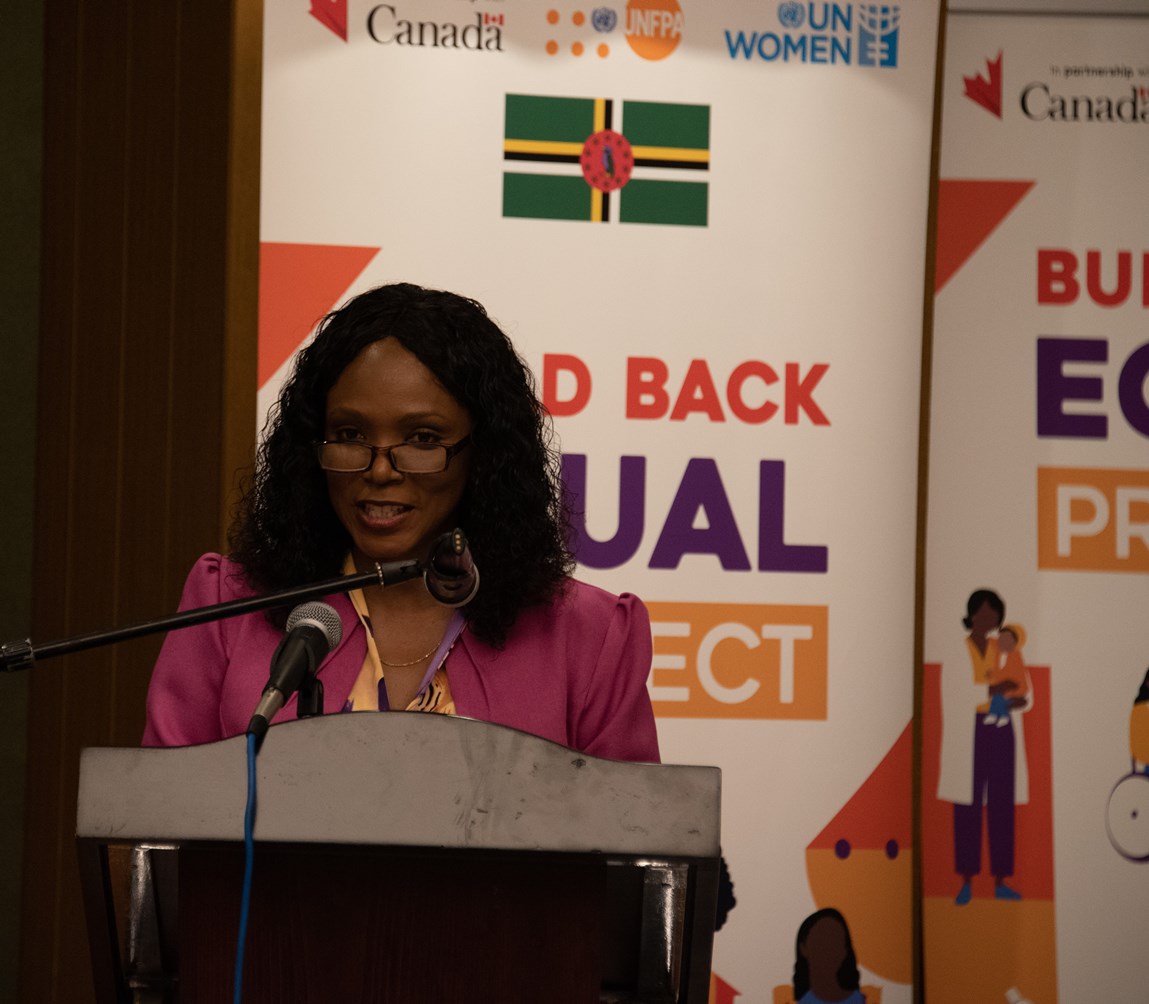
The Honourable Dr Cassandra Williams, Minister of State in the Ministry of Health, Wellness and Social Services, with special responsibility for Seniors Security, Children at Risk, Gender Affairs and the Differently Abled, Dominica said the Government’s partnership with UN Women and UNFPA spans over a decade and has been invaluable towards building a gender equal Dominica.
“To us, “Build Back Equal” means that as we build a climate resilient Dominica and by extension region, we must ensure that our interventions are gender responsive, that there is equitable access to benefits by women, men, boys, girls, and the aforementioned groups. Importantly, the specific project objectives are aligned with Dominica’s National Resilience Development Strategy and more specifically the priority action to “reinforce priorities around poverty reduction, promotion of justice, and economic and social empowerment of women and girls informal sector work and contraceptive use to ensure Sustainable Development,” Dr. Williams said.
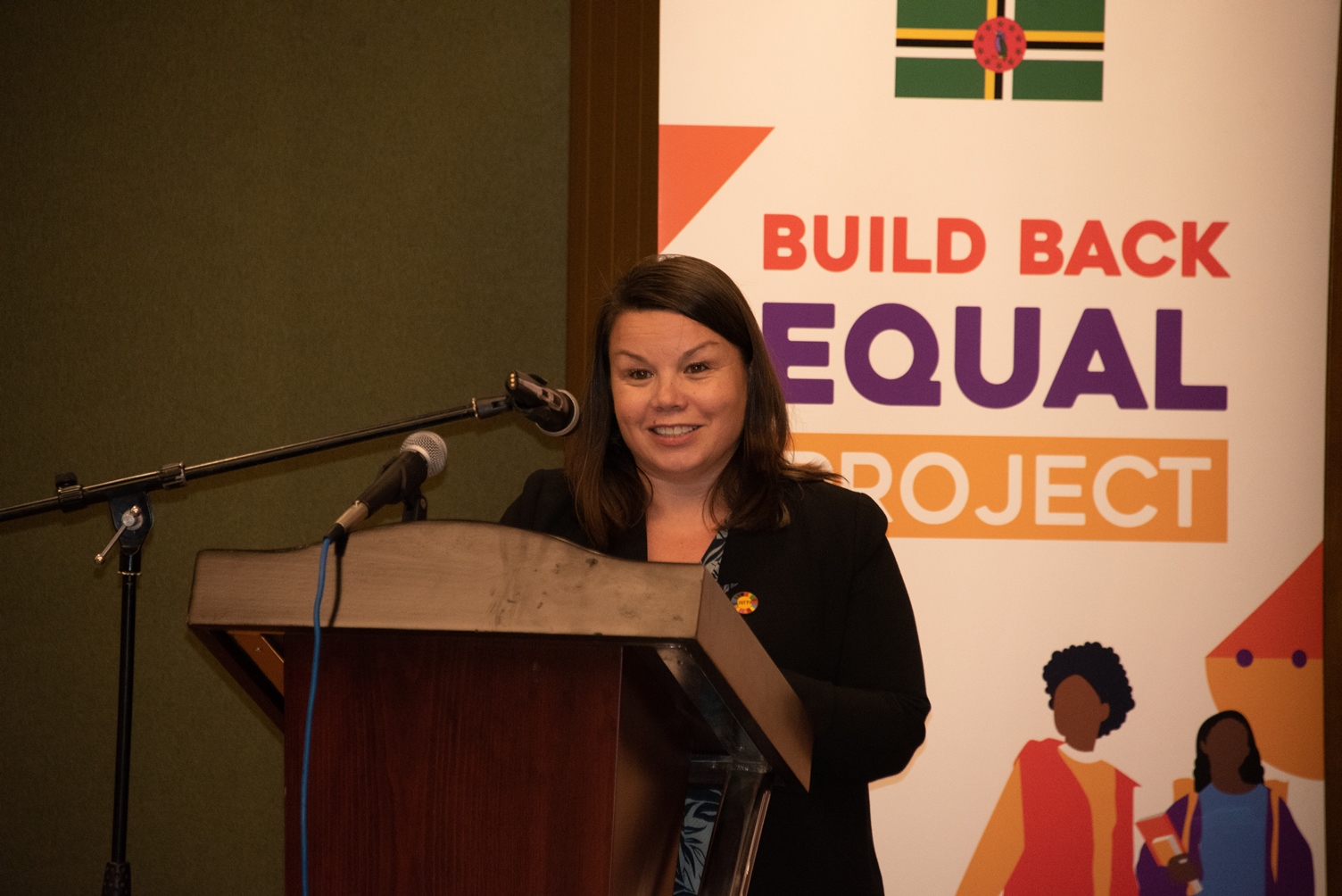
Ms. Jenny Karlsen, Deputy Director, UNFPA Subregional Office for the Caribbean said the collective ambition of the project is to build the economic resilience of women in the Eastern Caribbean, recognising that access to sexual and reproductive health and rights and gender-based violence services will be key to addressing the barriers they face and achieving this goal of resilience.
“UNFPA is indeed pleased to be one of the partners in this initiative because the BBE enables us to bolster support to the four BBE countries on improving access to quality reproductive health and rights frameworks and services for women and adolescent girls. Issues on which UNFPA – the United Nations sexual and reproductive health agency – has focused in the Caribbean as a trusted partner since 1969.
This is important, because while data demonstrates that we have made progress - Fewer women are dying in childbirth; more unintended pregnancies are prevented and young people’s opportunities have expanded - more work needs to be done,” Ms. Karlsen said.